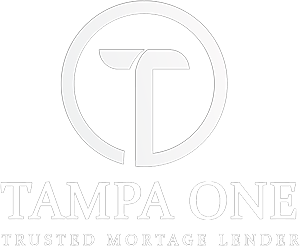
Recent stats show that it’s not just low credit scores causing issues for Americans. For many Millennials, it’s not knowing what a credit score is at all.
It’s true. According to a survey from LendEDU, a whopping 25% of Millennials don’t know what a credit score is. While that’s probably bad for their long-term financial health, it’s even worth for their immediate homebuying goals (which are more important than marriage and even kids, apparently.)
The fact of the matter is credit scores are the gold standard for evaluating a borrower. They tell you how responsible a person has been with credit in the past, how much credit they’re currently using, and how likely someone is to pay the money back, as promised.
Without understanding your credit score, it’s significantly harder to gauge your ability to get a mortgage loan — and ultimately, your homebuying options.
Why Credit Matters if You Want to Buy a House
Your credit score is front-and-center in the mortgage application process. It not only determines if you’ll qualify for a loan, but it also influences how much you’ll pay for that loan monthly and over time.
Here are just a few of the reasons a credit score is important if you hope to buy a home:
- It tells lenders how risky you are. Your score is a direct link to your habits as a borrower, and it shows a mortgage lender just how likely (or unlikely) you are to repay your loan — and do it on time, every time.
- It determines if you qualify for a loan. Mortgage loan programs come with minimum credit scores. Some loans require higher scores than others, but you’ll need to meet the minimum nonetheless.
- It influences your interest rate. Your mortgage rate is a direct reflection of your risk as a borrower. If you have a high credit score and put down a large down payment, you pose a low risk to the lender and will likely get a lower interest rate as a result. If your credit score is low (or nonexistent) or you put down the bare minimum down payment, then you’re a riskier bet for lenders. This means your rate will probably be much higher (and you’ll pay more in interest over time).
- It might influence what down payment you need, too. With some mortgage loan programs, your credit score determines how much you need to put down. On FHA loans, for example, a 580 credit score means your down payment only needs to be 3.5% of the home’s purchase price. If your score is lower than that? You’ll have to put down 10% or more.
The bottom line is that credit scores play a significant role in the mortgage process, and without one, you’re immediately at a disadvantage. Fortunately, if you don’t have credit (or just have a low one), there are some fairly simple ways to build it up before you apply for a mortgage.
How to Build (Or Improve) Your Credit Score
If you don’t have a credit score at all, your first step is to take out a credit card or loan. Secured credit cards are a good place to start, as these work much like debit cards. You put in a deposit of cash, and this amount serves as your credit limit. It allows you to build up your score in a safe, secure way that won’t put you in debt. There are also what are called “credit-builder” loans that work similarly.
You can also become an authorized user on a family member’s or friend’s credit card. As long as they make their payments on time and keep low balances, it will start to build your credit by way of association (you don’t even have to use the card yourself).
Finally, if you’re currently renting, you can ask your landlord to report your rent to credit bureaus. If they’re not willing to, you can report it yourself using tools like Rental Kharma or Rent Reporters. Every time you make your rent on time, it will help boost your credit score.
If you have credit but your score is low, you should take the following steps:
- Check your credit report for any errors and report them to the credit bureau
- Pay down your debts
- Settle any collections or overdue accounts
- Set up autopay to avoid any late payments
Once you do pay off a debt, be sure to keep that credit line open. The length of your credit lines accounts for 15% of your score, so the longer it’s open, the better your score will be.
How Will You Credit Impact Your Homebuying Chances?
If you’re curious how your current credit score (or lack thereof) could impact your homebuying goals, get in touch with The Mortgage Firm, Tampa One Branch at 813-644-6001. We’ll walk you through your options.














